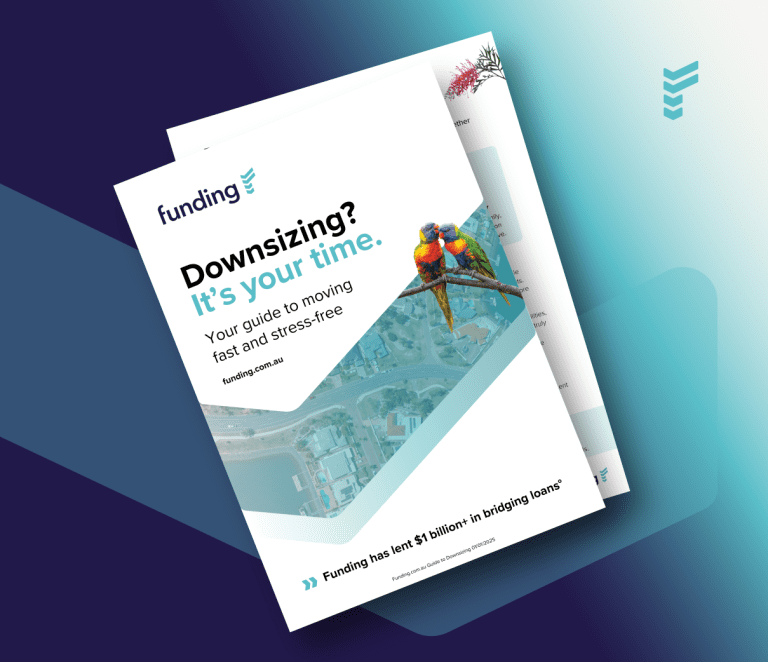A home loan deposit is the initial amount of money that a borrower pays upfront when purchasing a property. It represents a percentage of the property's purchase price and serves as a down payment. The home loan deposit is paid directly to the seller, and the remaining amount is financed through a home loan provided by a lender. The size of the deposit can affect the terms of the loan, including the interest rate and loan-to-value ratio (LVR).
Importance of understanding home loan deposits
Loan approval
A sufficient home loan deposit is often a key requirement for loan approval. Lenders assess the deposit amount to determine the borrower's financial stability and ability to repay the loan.
Interest rates
Larger deposits can lead to more favourable interest rates. Lenders may offer lower interest rates to borrowers with higher deposits as it reduces the lender's risk.
Loan-to-value ratio (LVR)
The LVR is the ratio of the loan amount to the property's value. A lower LVR, achieved through a larger deposit, can result in better loan terms and lower mortgage insurance costs.
Financial planning
Understanding the home loan deposit helps borrowers plan their finances and savings effectively. It enables them to set realistic goals for homeownership and prepare for additional costs associated with purchasing a property.
Reduced monthly repayments
A larger deposit reduces the loan amount, leading to lower monthly repayments. This can make the loan more affordable and manageable over time.
Key components of a home loan deposit
Deposit amount
The deposit amount is typically expressed as a percentage of the property's purchase price. Common deposit amounts range from 5% to 20%, with 20% being a standard benchmark for avoiding lenders mortgage insurance (LMI).
LMI is an insurance policy that protects the lender if the borrower defaults on the loan. Borrowers with deposits less than 20% of the property's value may be required to pay LMI, which can be a significant additional cost.
First home owner grant (FHOG)
In Australia, first-time homebuyers may be eligible for the FHOG, a government grant that can be used towards the home loan deposit. The grant amount and eligibility criteria vary by state and territory.
Savings and financial readiness
Borrowers need to save enough money for the deposit and demonstrate financial readiness to lenders. This includes having a stable income, good credit history, and additional savings for other costs like stamp duty, legal fees, and moving expenses.
Pros and cons of home loan deposits
Pros
- Better loan terms: Larger deposits can lead to more favorable loan terms, including lower interest rates and reduced mortgage insurance costs.
- Lower monthly repayments: A higher deposit reduces the loan amount, resulting in lower monthly repayments and overall interest paid over the life of the loan.
- Increased equity: A larger deposit means more equity in the property from the outset, providing financial security and flexibility.
- Improved loan approval chances: Demonstrating the ability to save for a larger deposit can improve the chances of loan approval.
Cons
- Higher initial cost: Saving for a larger deposit can be challenging and may delay the home buying process.
- Opportunity cost: The funds used for the deposit could be invested elsewhere, potentially yielding higher returns.
- Mortgage insurance: Borrowers with smaller deposits may need to pay LMI, adding to the overall cost of the loan.
Applications of home loan deposits
First-time homebuyers
First-time homebuyers need to understand the importance of the deposit in securing a home loan and planning their savings accordingly. They may also explore government grants and assistance programs.
Property investors
Property investors must consider the deposit requirements for multiple properties and plan their finances to ensure they can meet the deposit criteria for each investment.
Refinancing
Borrowers looking to refinance their home loans should be aware of the equity in their property, which is influenced by the initial deposit and subsequent repayments.
Upgrading homes
Homeowners planning to upgrade to a larger or more expensive property need to consider the deposit required for the new purchase and how it impacts their financial situation.
Home loan deposit in action
Consider a couple in Proserpine planning to buy a house priced at $800,000. They aim to save for a 20% deposit to avoid LMI. The key aspects of their home loan deposit include:
- Property price: $800,000
- Deposit percentage: 20%
- Deposit amount: $160,000 (20% of $800,000)
By saving $160,000 for the deposit, the couple avoids LMI and secures better loan terms. Their loan amount will be $640,000, resulting in lower monthly repayments and overall interest.
Loans
Home loan deposits are relevant in various financial scenarios, including building loans, bridging loans, and business loans. A sufficient deposit can improve loan approval chances and result in better loan terms. Understanding the role of deposits helps borrowers, lenders, and financial planners make informed decisions about property purchases and financing.
External links
For more information on home loan deposits and their implications, visit the following resources:
- Australian Securities and Investments Commission (ASIC) - Moneysmart
- First Home Owner Grant (FHOG) information
Conclusion
A home loan deposit is a critical component of the property buying process, representing the initial payment made towards the purchase price of a property. Understanding the importance of the deposit, its impact on loan terms, and the factors influencing the deposit amount is essential for successful financial planning and homeownership. By saving for a sufficient deposit, borrowers can improve their chances of loan approval, secure better terms, and reduce their overall financial burden. Whether for first-time homebuyers, property investors, or homeowners looking to upgrade, the home loan deposit plays a significant role in achieving property ownership goals.

